vision & mission
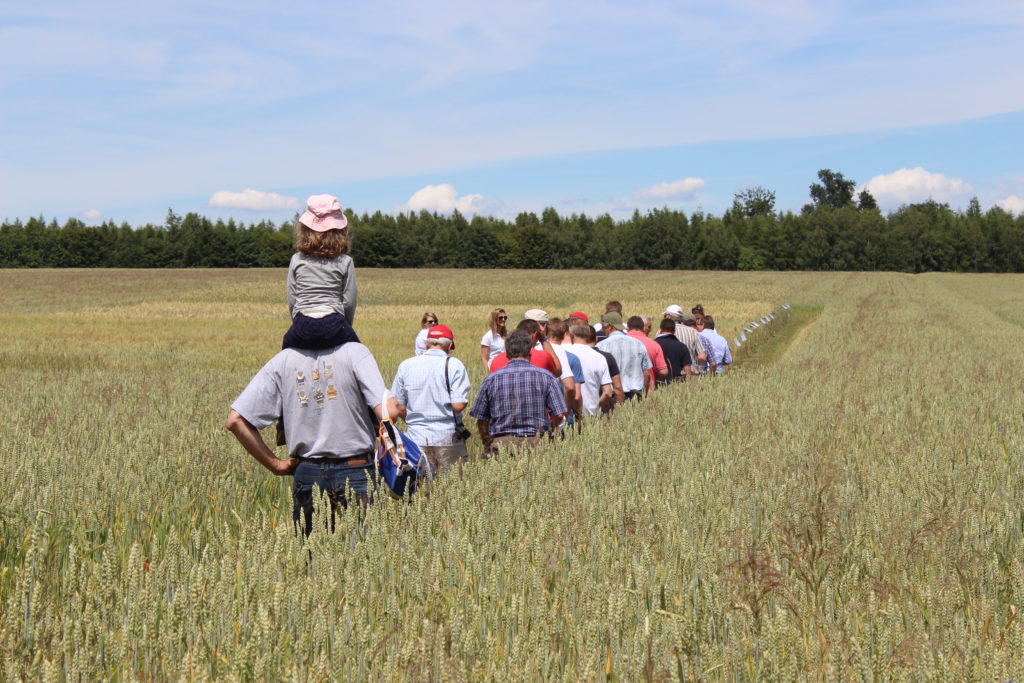
vision
Our vision is a sustainable agricultural and food system that produces high-quality food while protecting natural resources. We are convinced that this can be achieved through organic farming and that its production methods and agroecological principles pave this way.
mission
Our mission is to empower farmers and producers through research, advisory and knowledge transfer to create a sustainable agricultural and food system.
aims & objectives
aims & objectives
IBLA sees the purpose and aims of its efforts in research, consultancy, education and communication on topics of organic agriculture and agroecology.
These objectives are achieved by:
- Research and development of practical methods for organic and biodynamic agriculture; Taking into account nutritional, ecological and socio-economic aspects.
- Research of aspects of agriculture that are socially relevant;
- The establishment of an extension service for agricultural holdings and public bodies, with the aim to provide organic and biodynamic agriculture with the importance it deserves.
- Education of producers and consumers on organic and biodynamic agriculture as well as promotion of cooperation between producers, trade and consumers.
- Promotion of training in organic and biodynamic agriculture at the training and education centres in Luxembourg.
Since 2015, the IBLA has been a registered non-profit organization and has also been recognized as an official research institute in Luxembourg.
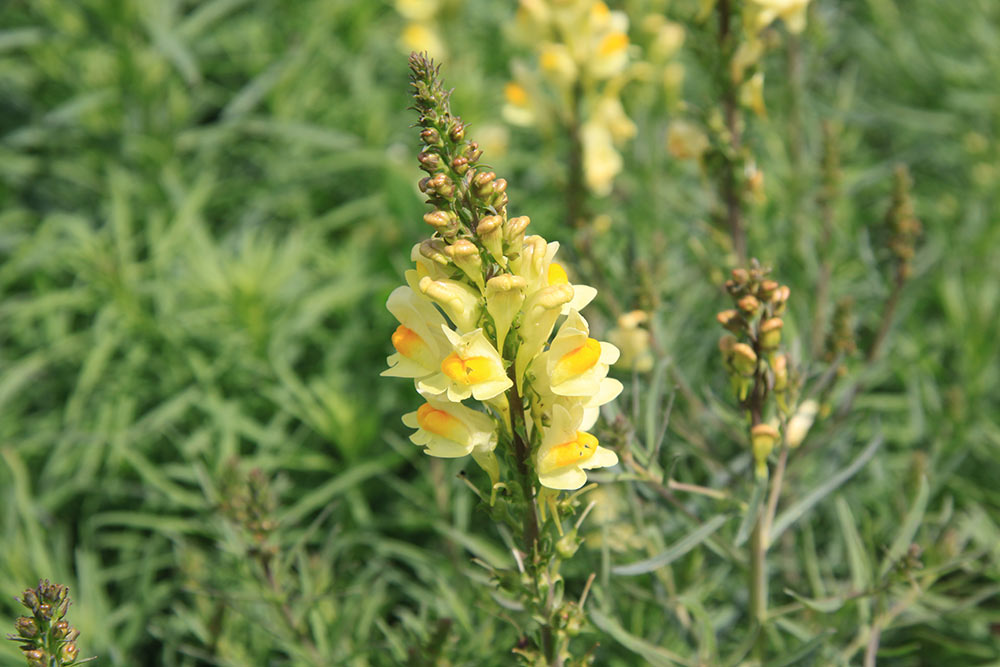
board
the board
FELTEN Claude (agricultural engineer) -President
COLLING-VON ROESGEN Jean-Louis (farmer) -Vice President
CONTER Gérard (agricultural engineer) JACOBS Francis (farmer) NOESEN Charel (farmer) NESER Jean-Michel (farmer) KONSBRÜCK Jeff (Winegrower) MANGEN Michèle (agricultural engineer) AENDEKERK Raymond (agricultural engineer)
-Members
team
+352 26 15 13 -84
+352 621 30 25 23
+352 621 34 00 96
+352 621 28 74 66
+352 621 647 126
+352 26 15 13 -90
+352 621 51 24 51
+352 26 15 13 -89
+352 621 67 84 67
+352 621 39 27 48
+352 621 75 18 75
+352 26 15 13 -78
+352 621 73 40 05
+352 621 49 40 09
+352 621 67 73 51
+352 26 15 13 -92
+352 621 30 25 22
+352 26 15 13 -77
+352 621 494 485
+352 26 15 13 -87
+352 26 15 13 -83
+352 621 629 217
+352 26 15 13 -77
+352 26 15 13 -88
+352 26 15 13 -87
extension services offer agriculture
agriculture
The IBLA extension service for your agricultural holding presents itself
- You are a farmer and want to explore the production and business management possibilities a conversion to organic agriculture can offer your farm?
- You have decided to convert your farm to organic agriculture and need competent advice and support during the conversion phase?
- You are already an organic farmer and need help with a specific problem?
- You want to get first insights into the methods of organic farming?
- You want to profit from the benefits of leguminous crops in your crop rotation and need help in variety selection, production technology and the design of your crop rotation?
If one of these situations applies to you, the IBLA agricultural extension service has just the right offers for you. Our advisers have knowledge in all fields of organic agriculture due to their education and many years of practical experience. We combine research and practice and offer a wide range of extension services suited to fit your professional and personal needs. Our advisers are active both on a regional and Europe-wide level to provide you with the best service.
They offer a wide range of advice, from arable land and grassland to animal husbandry and feeding. They are your contact before and during the conversion. Their consulting services include crop rotation, fertilization and soil cultivation in field fodder and crop production with the aim of increasing natural soil fertility and yield potential.
You can profit from their long-standing experience and their knowledge regarding animal health and performance. This includes questions related to breeding, keeping, feeding and ration calculation, as well as grassland-management and improvement.
Variety recommendations are based on the results of our variety trials. Another focus of IBLA is the cultivation of legumes. Here you can benefit from our experience gained through field experiments on cultivation techniques and variety trials. Business analyses and individual support in the implementation of the guidelines for organic agriculture complete our offers in the agricultural extension service.
extension services and further education offers
Take advantage of IBLA's extension service and further education offers and benefit from years of experience in consulting and research. Arrange a personal consultation on your farm or choose from the IBLA modules the one best suited for your farm:
- Module 6: legume and forage cultivation, permanent grassland
- Module 16: pre-conversion - initial consultation
- Module 17: pre-conversion - intensive advice
- Module 18: organic advice in the conversion phase
- Module 19: organic farming
- Module 20: methods of organic farming
- Module 37: organic advice, including in the context of investments > €300,000
- Module 38: diversification
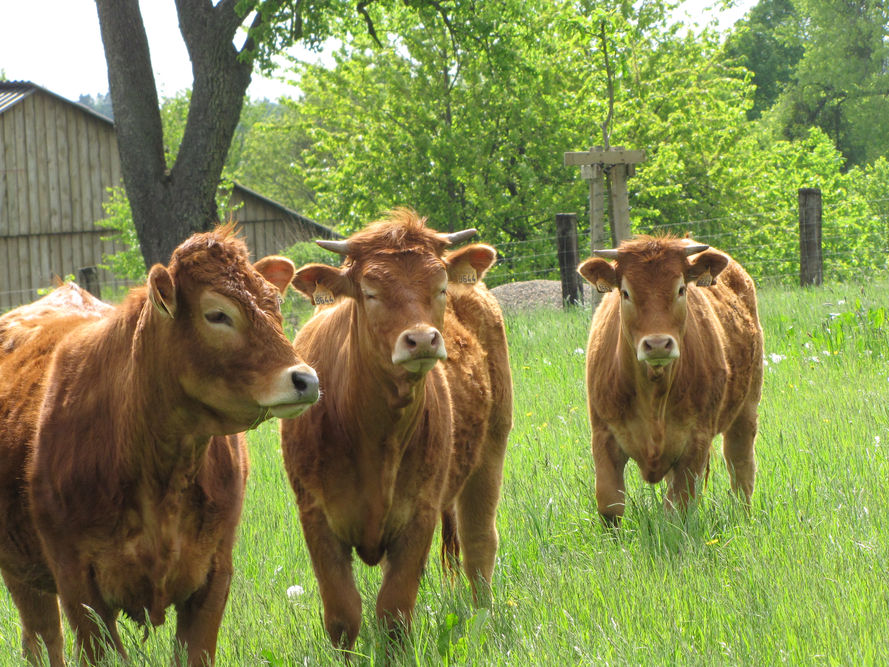
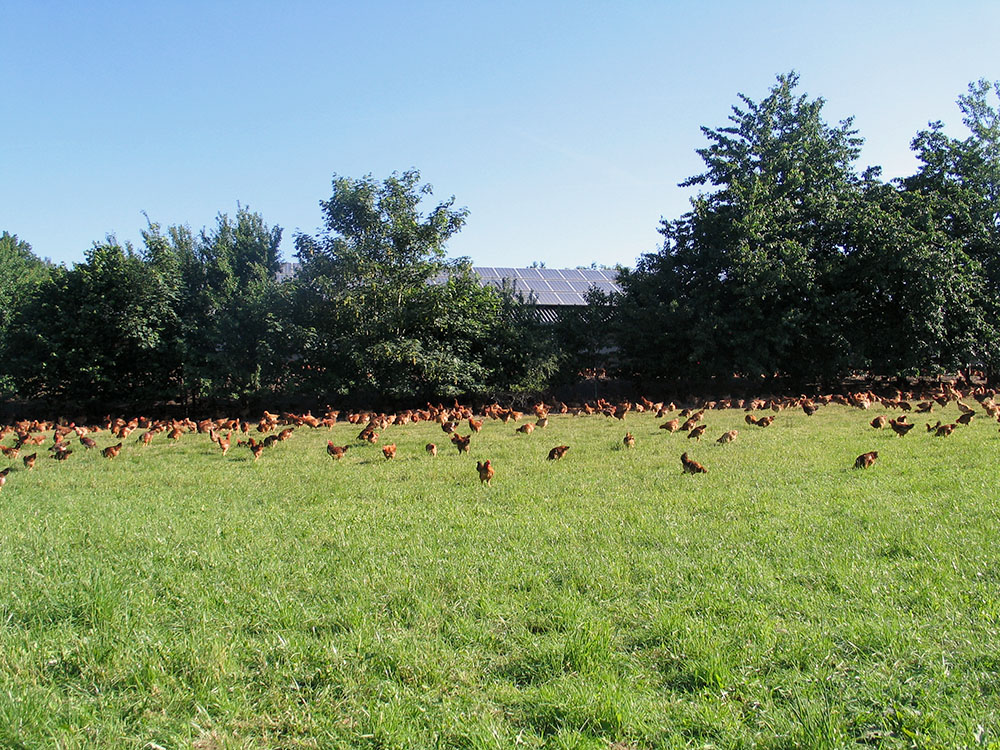
contact extension services agriculture
Jean-Paul Weis Mobile +352 621 39 27 48
Svenja Zelder Mobile +352 621 75 18 75
Ben Mangen Mobile +352 621 49 40 09
extension services offer viticulture
viticulture
The IBLA extension service for organic viticulture presents itself
- You already make use of the natural biological processes in many areas of production and want to explore the production and business management possibilities a conversion to organic viticulture can offer your winery?
- You have decided to change your winery to organic viticulture and you need competent advice and support during the conversion phase?
- You already are an organic winegrower and want the latest information in plant protection during the vegetative phase? You want competent expertise and want to be part of a strong network?
- You want to get insight into organic cultivation methods?
Then IBLA Viticulture Consulting has exactly the right offers for you! Thanks to his training and many years of practical experience, our viticulture consultant has knowledge in all areas of organic viticulture. He is well networked regionally and Europe-wide and will support you. IBLA Viticulture Consulting combines research and practice and offers a comprehensive range of advice according to your winery-specific and personal requirements. Jörg Pauly, who has managed his own organic winery for 20 years, studied agricultural sciences at the University of Bonn and then became a PhD in agricultural sciences (Dr. agr.). These studies were followed by 10 years of scientific work in agricultural and landscape research, as well as 20 years of managing his own organic winery. He will be happy to support you and give you advice in all matters relating to viticulture. From organic cultivation in the vineyard, to soil and greening maintenance, to plant protection and organic winemaking, he will advise you according to your operational goals and personal wishes. Wine-growing businesses are given targeted support both, before, during and after the conversion. In doing so, attention is always paid to the individual winery and weather-related conditions. Regular inspection rounds in the vineyards as well as newsletters during the growing season provide you with the most important current information on. Become part of a grown consulting community that is in close contact with practice and research.
extension services and further education offers
Take advantage of IBLA's extension service and further education offers and benefit from years of experience in consulting and research. Arrange a personal consultation on your winery or choose from the IBLA modules the one that best suited for you:
- Module 23: pre-conversion viticulture - initial consultation
- Module 24: pre-conversion viticulture - intensive counselling
- Module 25: organic viticulture consulting in the conversion phase
- Module 26: Organic viticulture
- Module 27: methods of organic viticulture
- Module 38: diversification
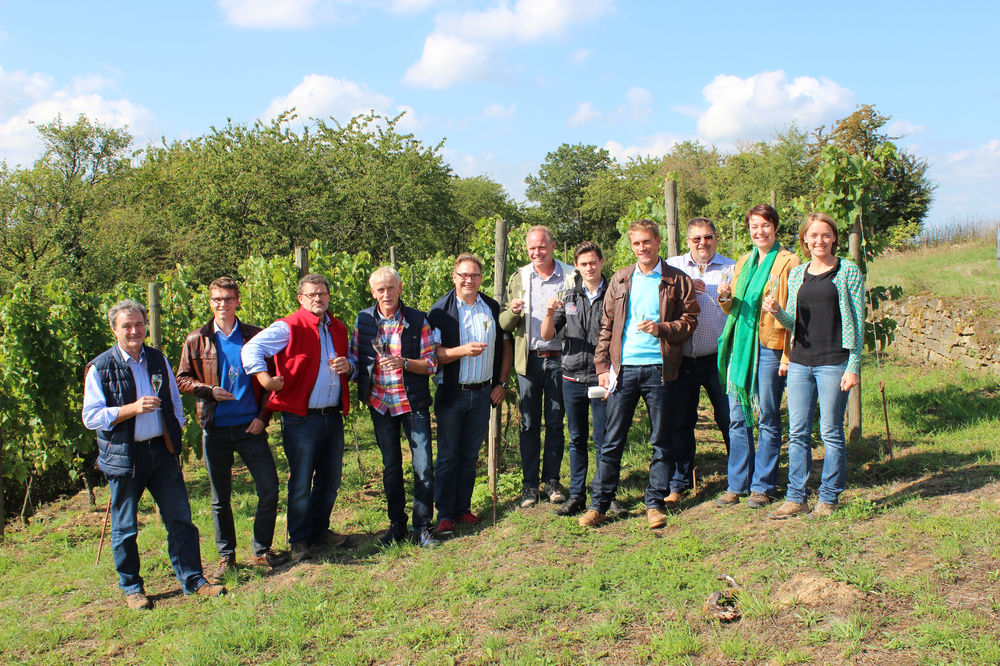
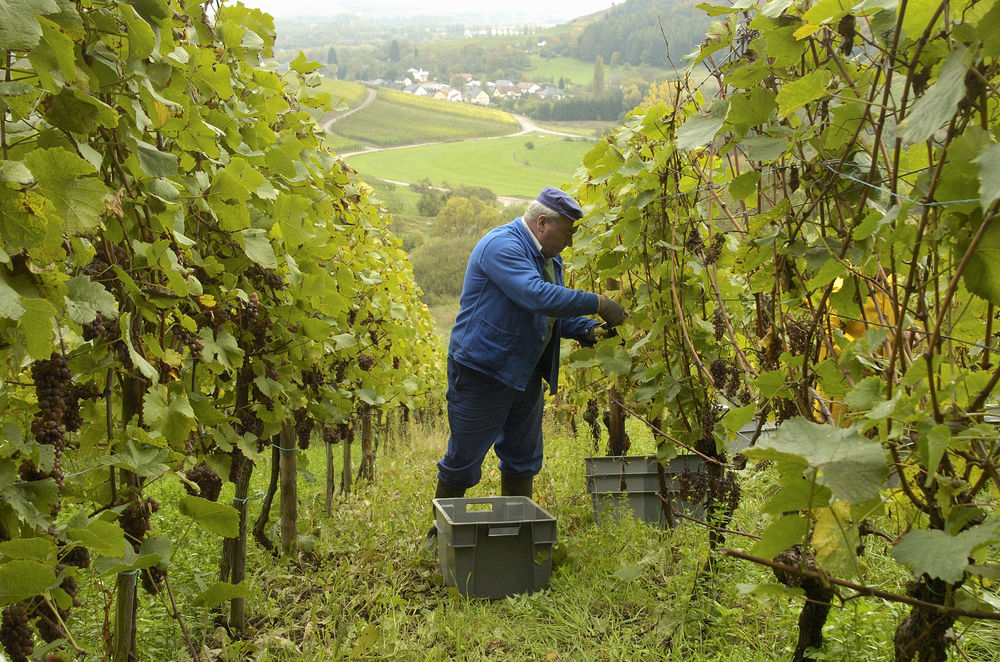
contact extension services viticulture
Jörg Pauly Mobile +352 621 677 351
communication
network of demonstration farms
organic agriculture Luxembourg
Our goal is to provide consumers and conventional farmers, processors and merchants with an insight into organic agriculture and through farm visits, festivals and practice days to our 9 demonstration farms. These visits offer a practice oriented insight into the everyday life on an organic farm and winery, as well as the special quality, the opportunities and challenges of organic agriculture.
In addition, the demonstration farms provide information on their production focus and marketing forms, as well as regional growing conditions. For this reason, organic farms from different regions and with different main branches have been selected to show the variety of organic agriculture in Luxembourg. If you want to visit one of these demonstration farms, contact us or the farms directly to make an appointment for your visit. The project “demonstration farms organic agriculture” is an initiative of the Ministry of Agriculture, Viticulture and Consumer protection/ASTA financed within the framework of the organic action plan in Luxembourg.
An Dudel
Bio-Haff Baltes
Domaine Sunnen-Hoffmann
Karelshaff
Schanck Haff
Biohaff Witry
Fromburgerhaff
projects
yeswiclim
Förderung der Zukunftsfähigkeit der Weingüter in der Großregion
smartregio
Sustainability Assessment of Direct Marketing Farms in Luxembourg using the SMART-Farm Tool
demonstration fields in bettendorf
renature
Helping insects into life
agroforst
Chance für eine zukunftsfähige Landwirtschaft in Zeiten des Klimawandels
vision 2050
Vision of 100% organic agriculture in Luxembourg in 2050: Resilience, environmental impacts and dietary change
durum wheat and pasta from luxembourg
Development of a value chain from the cultivation of durum wheat to further processing into pasta products
lefasus
Investigating Legume Soil Fatigue for Sustainable Expansion of European Grain Legume Cultivation
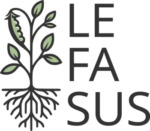
organicyieldsup
Improving yields in organic cropping systems

precision
Advanced Machine Learning for Drone-Based Precision Agriculture: Optimisation of Nitrogen and Weed Control for Wheat Yield
legendary
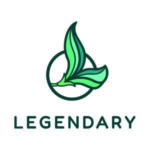
legu-wsk
Promotion of the value chain of grain legumes for human nutrition in Luxembourg
bio-wsk lux
Characterization of the main value chains of organic agriculture in Luxembourg
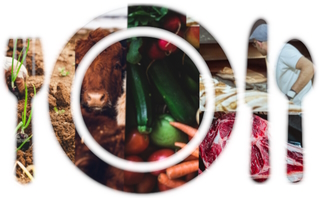
tassili
Biotechnology To Fight Fungal Infections in Plants; The Use of Saponins Isolated from Fabaceae
commect
Bridging the digital divide and addressing the need of Rural Communities with Cost-effective and Environmental-Friendly Connectivity Solutions

water protection
Methods of organic farming for the benefit of drinking water protection
fact sheets
Preparation of fact sheets for organic farming
2000 m² for our food
Project to promote a sustainable agricultural and food culture

variety trials
in organic agriculture in Luxembourg